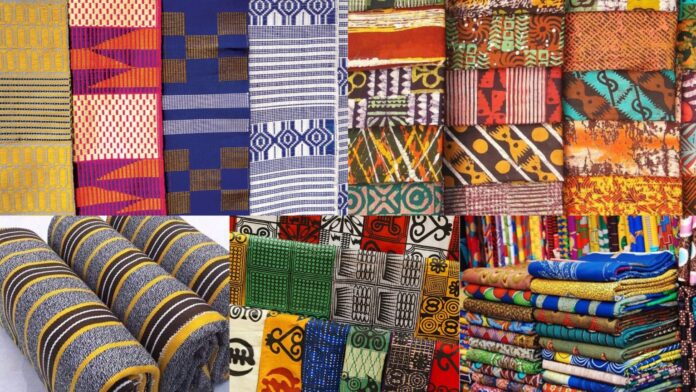Addressing the fundamental issues facing Africa can often be straightforward if we choose to act. Yet, both citizens and leaders tend to overlook these solutions or resort to complex measures, such as turning to the World Bank, IMF, or foreign consultants, which often come with stringent conditions.
Here, I would like to share my thoughts on one issue that we can easily resolve: saving our dying textile industry.
For the past thirty years, I have read annual reports detailing the difficulties faced by the textile industry in Ghana, resulting in some companies shutting down or repeatedly laying off workers.
Currently, I seldom hear about prominent Ghanaian fashion brands or designers like MKOG, PKOG, Kofi Ansah, Cadling, and others.
Despite this significant challenge within the textile sector, most citizens wear foreign fabrics and styles. Many white-collar workers don foreign clothing as their official dress code from Monday to Thursday, while our textile industries struggle to become profitable or even break even.
I believe the President can use his esteemed office and charisma to address this enormous issue with a simple Executive Order:
— All government workers should wear African print or dress to work from Monday to Friday.
Or…
— All government workers who receive special clothing allowances must wear African attire to the office.
It doesn’t make economic sense for the government to pay clothing allowances to workers to buy and wear foreign fashion brands for those foreign textile industries to flourish, while Ghanaian ones suffer.
Does the government need to meet with the World Bank on such a directive? No! Can the World Bank prevent this directive? No! Can the IMF pressure the President of Ghana to rescind this directive? Absolutely not!
This initiative could create more jobs and revenue for tailors, fashion designers, fashion schools, textile companies or factories, generate tax revenue for the government in the form of corporate tax and PAYE. It could also provide foreign exchange for exporters of African wear, leading to remarkable positive balance of trade and GDP growth.
Given our democratic system, I anticipate potential human rights concerns or protests against this proposal. However, we must be willing to support our leaders and make sacrifices as citizens to address our collective socio-economic challenges.
In my own small way, I sport more African wear and would wholeheartedly embrace the idea of the President directing all government workers to wear African dress from Monday to Friday. If many will not support it, then let’s continue to wallow in the quagmire and stop crying for economic freedom.

